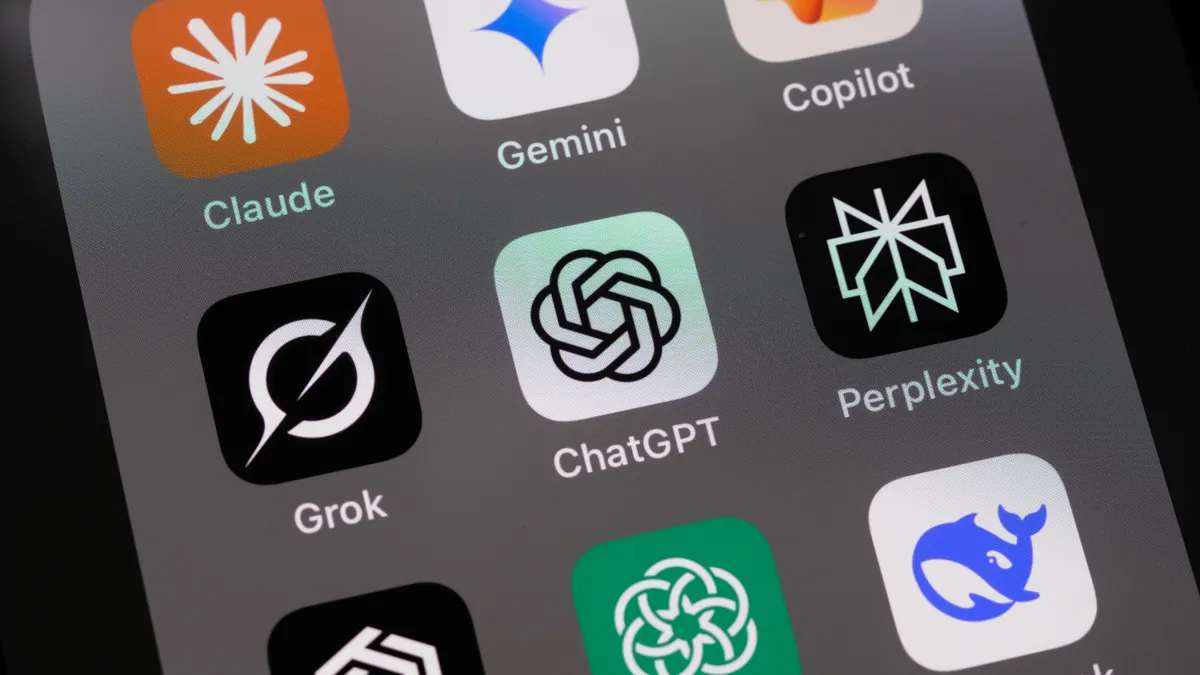Technobabble is our look at the more colorful aspects of technology and the tech industry. Be sure to check out last week's edition about a what experts were saying at Interop ITX.
The numbers are in, and Red Hat's CEO Jim Whitehurst is the most-liked tech CEO of a public company, when rated against CEOs across industries, according to Owler.
No. 11 overall, Whitehurst joins the likes of other industry leading CEOs such as Costco CEO Craig Jelinek, Marriott CEO Arne Sorenson and Capital One CEO Richard Fairbank, ranked No. 1, 2 and 3, respectively.
Owler used its "favorability" algorithm to determine how well liked CEOs are relative to peers both in and out of their industries. Tapping into its 1 million active user base, Owler weighed a CEO's review on the specific person who rated them. Under its model, the ratings from employees, followers, competitors and other stakeholders are all weighted differently.
Just because you're the CEO of the world's most valuable companies does not guarantee you a spot atop the CEO ratings. Apple CEO Tim Cook, for example, didn't break the top 50 while Google CEO Sundar Pichai came in at No. 38 among most-liked CEOs of public companies. Microsoft CEO Satya Nadella came in at No. 41.
In addition to the top-rated CEOs, Owler also assembled a list of those with low likability ratings. The CEOs of HP, Dion Weisler, and HPE, Meg Whitman, were ranked low on the list, as was Yahoo CEO Marissa Mayer.
Overall, CEOs in the tech industry have mid-range likeability scores when compared to other sectors. But what industry fell to the very bottom of the list? The airline industry, which had three CEOs in the 10 most disliked CEOs, including the heads of American Airlines, Southwest Airlines and United Airlines.
One macro thing
Checkmate, humanity. It's been 20 years since IBM's Deep Blue famously beat chess champion Garry Kasparov, but now computers have mastered an even more complex game. This week, Google's artificial intelligence program, AlphaGo, developed by DeepMind, defeated the world's top Go player, a decisive victory that solidifies the advancements in AI.
AlphaGo defeated a leading player last year, but this tournament features China's Ke Jie, which many consider to be the best Go player in the world.
In the first two of three games, AlphaGo defeated Ke. The competition remained close in the second game, as Ke posed quite the challenge to the computer. "For the first 100 moves it was the closest we’ve ever seen anyone play against the Master version of AlphaGo,” DeepMind CEO Demis Hassabis said in a press conference, The Verge reports. The third match is set to take place Saturday.
The reason computer scientists have taken on Go is because of its renowned complexity. As one researcher puts it, the number of variations in the first 40 moves of Go on a 19X19 board is greater than the number of atoms in the universe.
Defeating human competitors in the 3,000 year-old game marks advancements in AI that computer scientists can apply to other areas such as reducing energy use in data centers. But AlphaGo's advancements are also changing the way competitors think about the ancient game. One player says he is now more free to play, and that no move seems impossible.
But Ke has a different impression of AlphaGo: "Last year, I think the way AlphaGo played was pretty close to human beings, but today I think he plays like the God of Go," Ke said, Reuters reports.
One micro thing
The end is nigh for the trusty USB. That's not to say it's going away entirely, but industry giants are laying the foundation to phase out USB type A in favor of the new USB-C, Business Insider reports.
Next year, Intel plans to make its Thunderbolt 3 cable technology available on a royalty-free license to the industry. What does that mean? It's an incentive for device manufacturers to start using a new type of USB, in essence phasing out the standard USB type A, which has been in use for more than two decades.
Changing the computing device connection standard will reduce the size of ports and allow for faster data transfers between computers and external storage devices, according to Business Insider. But the technology also makes it easier to plug in devices that require other ports, such as monitors or HDMIs. In essence, users could employ one USB-C port to connect all their accessories as a sort of docking station.
And maybe, just maybe, people will no longer have to struggle with which side they need to plug into a USB jack.
One last thing
We're now in an age where it is not uncommon for a tech company to have a higher value than the GDP of a major metropolitan area. In a recent report, Bank of America Merrill Lynch compared tech giant's market caps to the largest cities in the U.S., GeekWire reports.
Apple and Google — with a market cap of $800 billion and $654 billion, respectively — have a higher value than every city in the U.S., save for New York and Los Angeles, which have a GDP of $1.48 trillion and $832 billion, respectively. The next leading tech company, Microsoft, has a market cap higher than Dallas, Houston and D.C.
What the report warns is that the concentration of wealth in a few hubs of the country could lead to destabilization, with potential calls for the redistribution of wealth as the gap grows between tech capital and human capital.




















